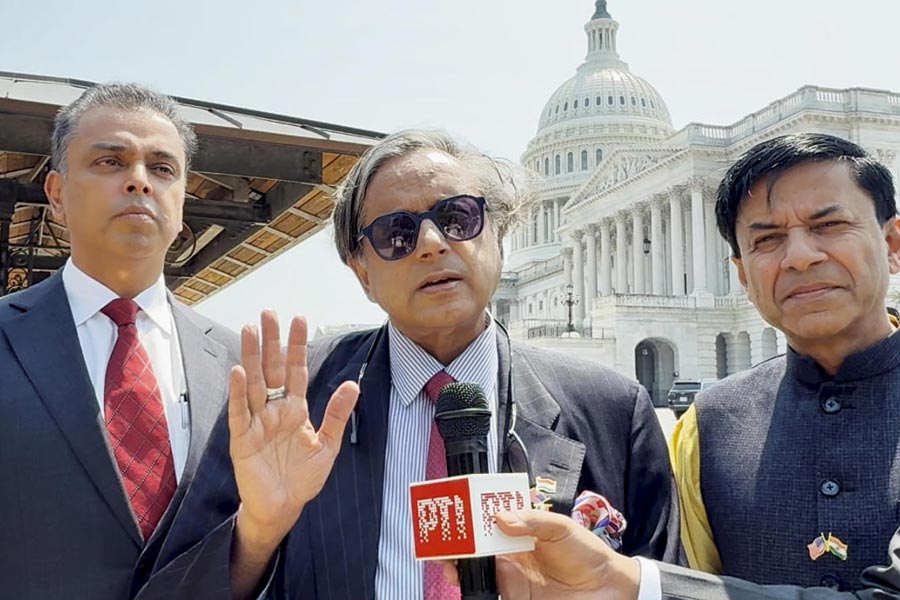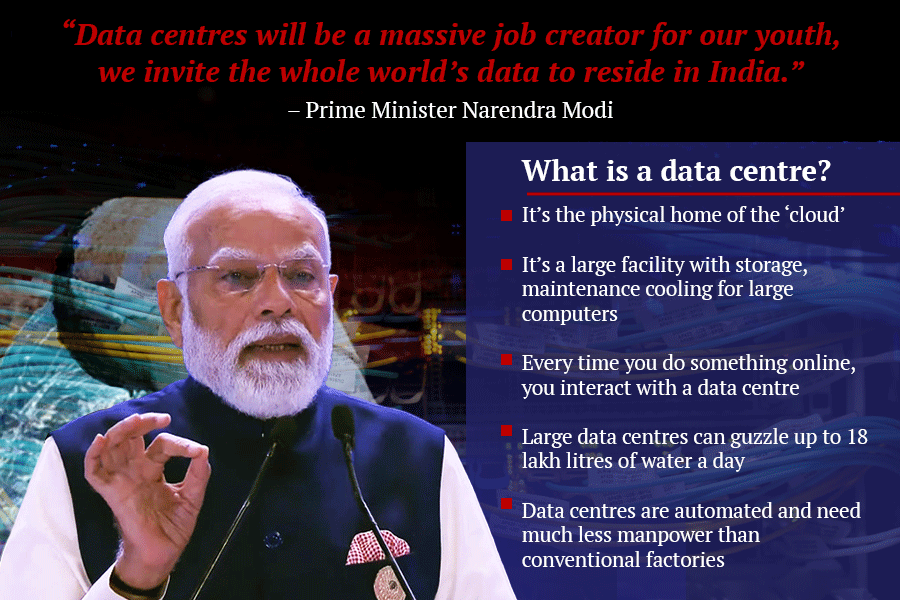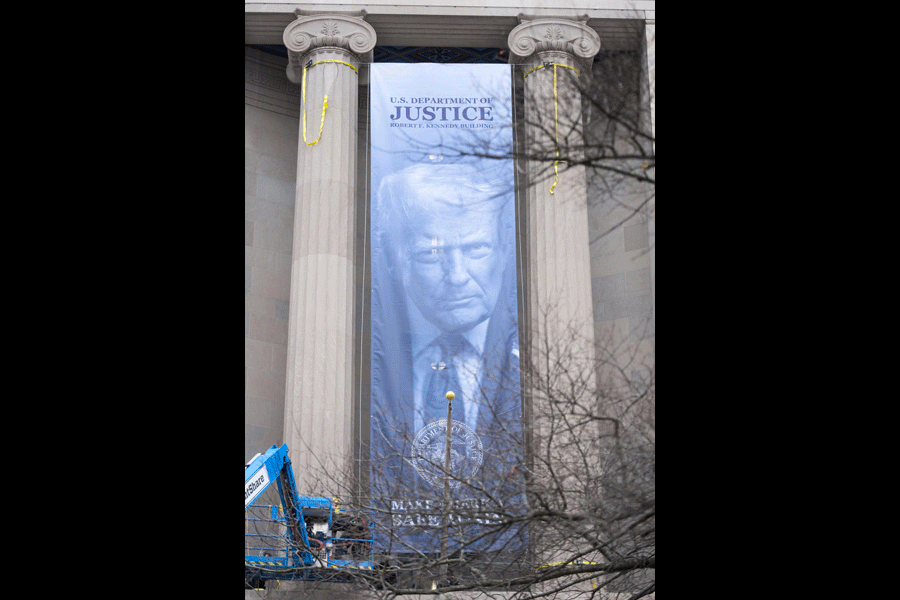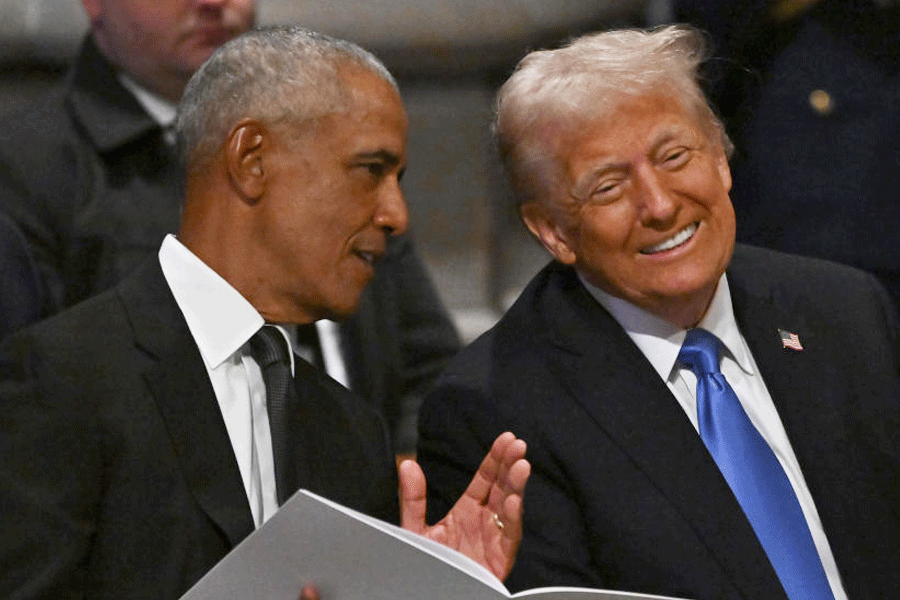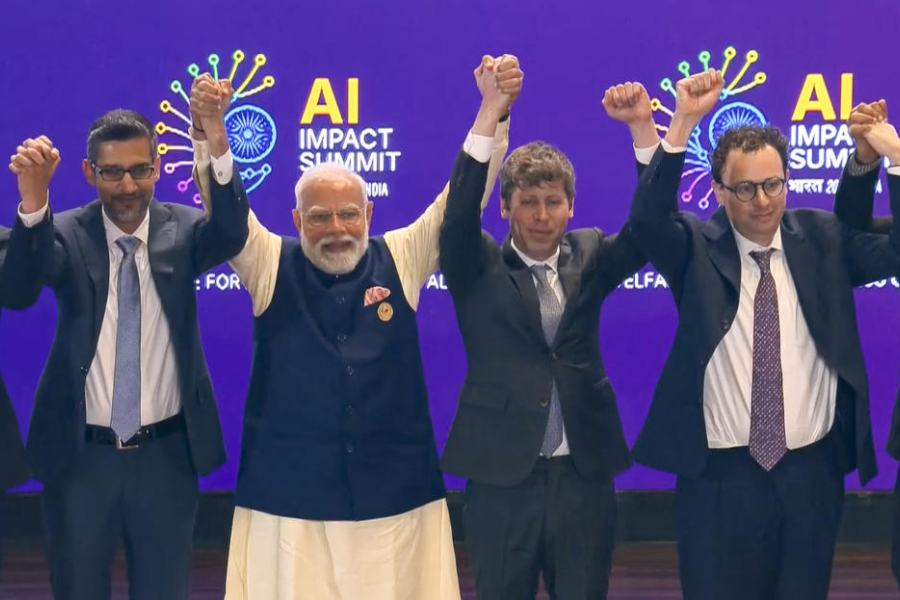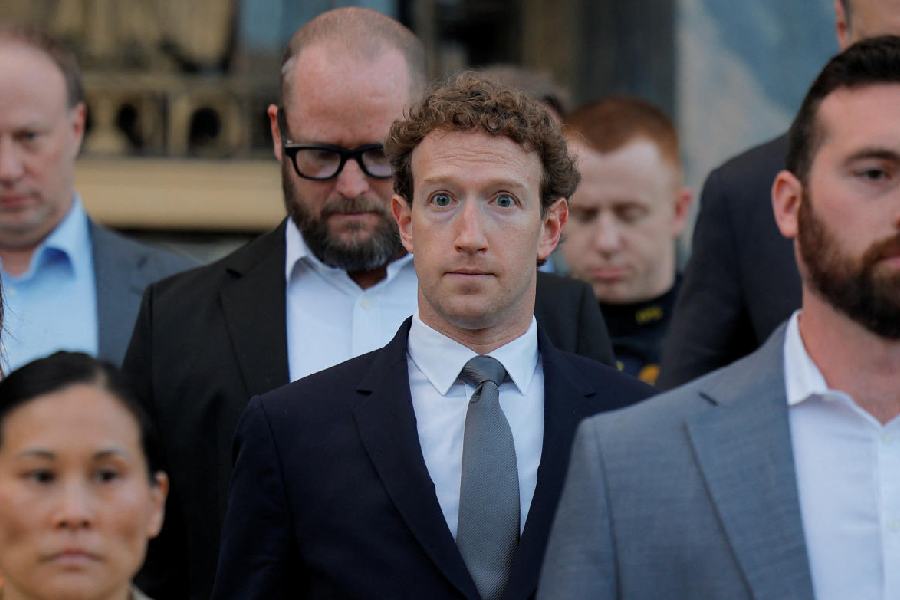The multi-party delegation of Indian parliamentarians had an “extremely rewarding” day meeting US Congressmen and Senators at Capitol Hill, briefing them about Operation Sindoor and India's fight against terrorism, leader Shashi Tharoor said.
“Spending a day on Capitol Hill has been extremely rewarding because we were able to meet many Congressmen, Senators,” Tharoor said during a conversation at The National Press Club here on Wednesday.
The delegation, which arrived from India on May 24, travelled to Guyana, Panama, Colombia, and Brazil before visiting Washington for the final leg of the tour.
“Broadly, what we are seeking to do in every country is to explain our version of events, our experience over the last few weeks, to seek the solidarity and understanding of those we meet. And I'm very pleased to say that so far, our batting average is over 100,” Tharoor said.
He said every single person the delegation met so far immediately not only condemned resolutely the terrorist attack upon India, expressed their outrage and sympathy, but also explicitly endorsed India's right to defend itself against terrorism.
“This kind of understanding has been most welcome,” he said, adding that "we left the Hill very pleased with the quality of the conversations, the level of interest".
“There is tremendous interest in every country and on the Hill in strengthening relations with India across the board. It's not just a question of standing with us against terror. They are also thinking positively about economic development cooperation, trade, investment." Later, addressing a press conference at the Indian Embassy, Tharoor said that in the delegation's meeting with US lawmakers and Congressmen at Capitol Hill, “we didn't have a single sceptical or negative voice".
"What we got was a very, very positive response,” he said. "We had a very good session." He said the two key lines he would use were total support and solidarity for India in its fight against terrorism, and complete understanding of India's right to defend itself against terrorism. On both these points, “very, very clear”.
The delegation met bipartisan co-chairs of the India Caucus in the House of Representatives, Congressmen Ro Khanna and Rich McCormick, and vice co-chairs Congressman Andy Barr and Marc Veasey.
The parliamentary delegation briefed the Caucus members "on the cross-border terrorism faced by India and India's strong and resolute stance in the fight against terror".
"The congressmen expressed unequivocal and bipartisan condemnation for the terror attack in Pahalgam. They expressed support for India's right to respond to terrorism in the spirit of zero tolerance against terrorism. The Caucus members also hailed the strong strategic partnership between India and the US,” the Indian Embassy said on X.
The team held a “candid and fruitful exchange” with House Foreign Affairs Committee leadership, including chair representative Brian Mast, ranking member representative Gregory Meeks, South and Central Asia subcommittee chair Rep. Bill Huizenga, ranking member congresswoman Sydney Kamlager-Dove, ranking member representative Ami Bera and East Asia and Pacific subcommittee representative Young Kim.
“The parliamentary delegation briefed the committee members on the success of Operation Sindoor in defining a new normal in India's fight against cross-border terrorism. The committee leadership condemned the Pahalgam attack unequivocally. India and the US stand together in their unwavering resolve and fight against terrorism in all its forms,” the Embassy said on X.
Responding to a question about Secretary of Commerce Howard Lutnick recently saying there were certain things the Indian government did that generally rubbed the United States the wrong way, for instance buying its military gear from Russia, Tharoor said there had been a “steady change” in the pattern of dependence on certain weapon suppliers.
He said India still needs a lot of Russian spare parts, but "it’s come down a lot from the peak", adding that by comparison, 81 per cent of Pakistan’s weapon systems and imports were from China.
“We don't have that kind of dependence. We've diversified, we have American weaponry, we're very much in the market for more, whatever the Americans are prepared to discuss with us and sell us, we certainly hope we'll move forward,” he said.
Responding to a similar question during the press briefing at the Indian Embassy, delegation member Tejasvi Surya said the issue surfaced in a couple of discussions the delegation had.
“But we made it very clear to the Americans that, unlike Pakistan, whose bulk of armament and military hardware - 81 per cent comes from China, India's military hardware is not only growing indigenously, but is also very diverse,” Surya said, adding India purchased military hardware from the United States, France, and Israel.
Except for the headline, this story has not been edited by The Telegraph Online staff and has been published from a syndicated feed.

